What are the most popular Korean books? Check out these books about South Korea to start immersing yourself in the culture before your visit to Korea.
When I’m planning a trip I like to read books originating from that country to start getting immersed and learn more about the culture. If you feel the same then look at the list below for inspiration.
For this list I’ll limit myself to books with English translations, assuming not all of you are fluent in Korean which goes for me as well. I will only recommend what I have read myself. So this list will be updated regularly when I come across interesting reads. If you have read any good books about South Korea or by a Korean author, please recommend them to me in the comment section below.
Are you planning to visit Seoul? Check out my 11 Ways to Spend a Day in Seoul post.
Most popular Korean books
1) Kyung-Sook Shin - Please Look After Mom
Deep story about a family’s search for their missing mother. It makes you think about your mom and grandma and how they’ve lived their lives and what is important to them now. Do you know what makes them happy?
When sixty-nine-year-old So-nyo is separated from her husband among the crowds of the Seoul subway station, and vanishes, their children are consumed with loud recriminations, and are awash in sorrow and guilt. As they argue over the “Missing” flyers they are posting throughout the city – how large of a reward to offer, the best way to phrase the text – they realize that none of them have a recent photograph of Mom. Soon a larger question emerges: do they really know the woman they called Mom?
2) Han Kang - The White Book
Meandering, slightly poetic Korean novel about the color white, inspired by the fictional journey of an older sister that died as a baby. It’s not a “story” story. So read this when you are in the mood for some silence, some peace, and some pondering.
While on a writer’s residency, a nameless narrator wanders the twin white worlds of the blank page and snowy Warsaw. THE WHITE BOOK becomes a meditation on the color white, as well as a fictional journey inspired by an older sister who died in her mother’s arms, a few hours old. The narrator grapples with the tragedy that has haunted her family, an event she colors in stark white–breast milk, swaddling bands, the baby’s rice cake-colored skin–and, from here, visits all that glows in her memory: from a white dog to sugar cubes.
3) Park Seongwon - What Makes a City?
The writing style (or translation) made the stories more intense and had the power to draw my mind into the world inside the book. The book provides you with possible meanings and messages, but you can come up with many more while considering how it applies to your life and the way you live. What Makes a City? is not a book to read from cover to back, but rather one where you read a story a day and ponder on the meaning of that single story.
What Is It That Makes Up a City? provides the reader with an intelligent perspective on the strange culture of our times and a series of adventures through which we explore universal human problems. Family, education, the media, popular culture, technology, alienation, financial power or the lack thereof . . . These are among the most prominent components of the eight stories which comprise this book, in which characters struggle—sometimes in despair, but usually with a sense of humor—to understand or at least accept their place in a world that often makes no sense.
4) Elisa Shua Dusapin - Winter in Sokcho
A beautiful story, wonderfully crafted with a deeper layer underneath. If you’re planning or considering visiting Sokcho in South Korea, then I highly recommend reading this book. By a French author, but set in South Korea.
It’s winter in Sokcho, a tourist town on the border between South and North Korea. The cold slows everything down. Bodies are red and raw, the fish turn venomous, beyond the beach guns point out from the North’s watchtowers. A young French Korean woman works as a receptionist in a tired guesthouse. One evening, an unexpected guest arrives: a French cartoonist determined to find inspiration in this desolate landscape.
The two form an uneasy relationship. When she agrees to accompany him on trips to discover an ‘authentic’ Korea, they visit snowy mountaintops and dramatic waterfalls, and cross into North Korea. But he takes no interest in the Sokcho she knows – the gaudy neon lights, the scars of war, the fish market where her mother works. As she’s pulled into his vision and taken in by his drawings, she strikes upon a way to finally be seen.
5) Yun Ko-eun - The Disaster Tourist
A perfect blend between reality and imagination that questions our view on issues in society. A fun read about a topic that many people love: travel.
For ten years, Yona has been stuck behind a desk as a coordinator for Jungle, a travel company specializing in vacation packages to destinations devastated by disaster and climate change. Her work life is uneventful until trouble arises in the form of a predatory colleague.
To forestall any disruption of business-as-usual, Jungle makes Yona a proposition: a paid “vacation” to the desert island of Mui. But Yona must pose as a tourist and assess whether Jungle should continue their partnership with the unprofitable destination.
Yona travels to the remote island, whose major attraction is an underwhelming sinkhole, a huge disappointment to the customers who’ve paid a premium. Soon Yona discovers the resort’s plan to fabricate a catastrophe in the interest of regaining their good standing with Jungle–and the manager enlists Yona’s help. Yona must choose between the callous company to whom she’s dedicated her life, or the possibility of a fresh start in a powerful new position. As she begins to understand the cost of the manufactured disaster, Yona realizes that the lives of Mui’s citizens are in danger–and so is she.
6) Gong Ji-Young - Our Happy Time
You know how it’s going to end. A very sad but beautiful story.
Yu-Jung, beautiful, wealthy, and bright, is lying in her hospital bed, recovering from her third suicide attempt, when she receives a life-changing visit. Her no-nonsense aunt, a nun, appears by her side and suggests Yu-Jung accompany her on a charitable visit to death row. At her lowest ebb, Yu-Jung is resistant. But something compels her to go to the prison. There she meets Yun-Soo, a convicted murderer who will soon be put to death. Though she is repulsed by his crimes, something about the depth of his suffering strikes a chord in her. Shaken by their encounter, she returns to visit him the next week. And the next…
7) Han Kang - The Vegetarian
It’s not so much about being a vegetarian, but more about a woman struggling to choose her path and figuring out how she wants to live and her wish for the world to accept her as she is. It’s dark, it’s rücksichtslos and very immersing.
Before the nightmare, Yeong-hye and her husband lived an ordinary life. But when splintering, blood-soaked images start haunting her thoughts, Yeong-hye decides to purge her mind and renounce eating meat. In a country where societal mores are strictly obeyed, Yeong-hye’s decision to embrace a more “plant-like” existence is a shocking act of subversion. And as her passive rebellion manifests in ever more extreme and frightening forms, scandal, abuse, and estrangement begin to send Yeong-hye spiraling deep into the spaces of her fantasy. In a complete metamorphosis of both mind and body, her now dangerous endeavor will take Yeong-hye—impossibly, ecstatically, tragically—far from her once-known self altogether.
8) Masaji Ishikawa - A River of Darkness: One Man’s Escape from North Korea
About the treatment of someone stuck between two worlds. It makes you want to fix the world, but just like the main character, you probably won’t be able to do anything about it.
Half-Korean, half-Japanese, Masaji Ishikawa has spent his whole life feeling like a man without a country. This feeling only deepened when his family moved from Japan to North Korea when Ishikawa was just thirteen years old, and unwittingly became members of the lowest social caste. His father, himself a Korean national, was lured to the new Communist country by promises of abundant work, education for his children, and a higher station in society. But the reality of their new life was far from utopian.
9) Cho Nam-joo - Kim Jiyoung, Born 1982
Painful and confronting… the last chapter from the doctor’s point of view was brilliant.
In a small, tidy apartment on the outskirts of the frenzied metropolis of Seoul lives Kim Jiyoung. A thirtysomething-year-old “millennial everywoman,” she has recently left her white-collar desk job—in order to care for her newborn daughter full-time—as so many Korean women are expected to do. But she quickly begins to exhibit strange symptoms that alarm her husband, parents, and in-laws: Jiyoung impersonates the voices of other women—alive and even dead, both known and unknown to her. As she plunges deeper into this psychosis, her discomfited husband sends her to a male psychiatrist.
In a chilling, eerily truncated third-person voice, Jiyoung’s entire life is recounted to the psychiatrist—a narrative infused with disparate elements of frustration, perseverance, and submission. Born in 1982 and given the most common name for Korean baby girls, Jiyoung quickly becomes the unfavored sister to her princeling little brother. Always, her behavior is policed by the male figures around her—from the elementary school teachers who enforce strict uniforms for girls, to the coworkers who install a hidden camera in the women’s restroom and post their photos online. In her father’s eyes, it is Jiyoung’s fault that men harass her late at night; in her husband’s eyes, it is Jiyoung’s duty to forsake her career to take care of him and their child—to put them first.
Jiyoung’s painfully common life is juxtaposed against a backdrop of an advancing Korea, as it abandons “family planning” birth control policies and passes new legislation against gender discrimination. But can her doctor flawlessly, completely cure her, or even discover what truly ails her?
10) Jang Eun-jin - No One Writes Back
Even though the plot might not come as a surprise, the journey there is beautiful to read.
Communication—or the lack thereof—is the subject of this sly update of the picaresque novel. No One Writes Back is the story of a young man who leaves home with only his blind dog, an MP3 player, and a book, traveling aimlessly for three years, from motel to motel, meeting people on the road. Rather than learn the names of his fellow travelers—or even invent nicknames for them—he assigns them numbers. There’s 239, who once dreamed of being a poet, but who now only reads her poems to a friend in a coma; there’s 109, who rides trains endlessly because of a broken heart; and 32, who’s already decided to commit suicide. The narrator writes letters to these men and women in the hope that he can console them in their various miseries, as well as keep a record of his own experiences: “A letter is like a journal entry for me, except that it gets sent to other people.” No one writes back, of course, but that doesn’t mean that there isn’t some hope that one of them will, someday…
11) Bae Myung-hoon - Tower
Tower is a mirror of society; a sci-fi depiction of social and political issues. It is intense, subtle and funny.
Tower is a series of interconnected stories set in Beanstalk, a 674-story skyscraper and sovereign nation. Each story deals with how citizens living in the hypermodern high-rise deal with various influences of power in their lives: a group of researchers have to tell their boss that a major powerbroker is a dog, a woman uses the power of the internet to rescue a downed fighter pilot abandoned by the government, and an out-of-towner finds himself in charge of training a gentle elephant to break up protests. Bae explores the forces that shape modern life with wit and a sly wink at the reader.
Buy from Amazon
Read my review of Tower
12) Bora Chung - Cursed Bunny
Bora Chung will amuse you with all the unusual things that are considered perfectly ordinary.
Cursed Bunny is a genre-defying collection of short stories by Korean author Bora Chung. Blurring the lines between magical realism, horror, and science-fiction, Chung uses elements of the fantastic and surreal to address the very real horrors and cruelties of patriarchy and capitalism in modern society.
Anton Hur’s translation skilfully captures the way Chung’s prose effortlessly glides from being terrifying to wryly humorous.
13) Choi Eunyoung - Shoko's Smile
It takes skill to write and translate a scene that makes the reader sympathize so strongly with a character, both while reading and when thinking about the book weeks later.
In crisp, unembellished prose, Choi Eunyoung paints intimate portraits of the lives of young women in South Korea, balancing the personal with the political. In the title story, a fraught friendship between an exchange student and her host sister follows them from adolescence to adulthood. In ‘A Song from Afar’, a young woman grapples with the death of her lover, travelling to Russia to search for information about the deceased. In ‘Secret’, the parents of a teacher killed in the Sewol ferry sinking hide the news of her death from her grandmother.
14) Kim Yideum - Blood Sisters
This story takes place in Busan, so if you’re traveling there, then read this book. I really liked the writing style and the references to art, culture and philosophy. I enjoyed this book very much, but it might not be for everyone because of the subjects and thoughts in it.
Blood Sisters tells the story of Jeong Yeoul, a young Korean college student in the 1980’s, when the memory of President Chun Doohwan’s violent suppression of student demonstrations against martial law was still fresh. Yideum captures with raw honesty the sense of dread felt by many Korean women during this time as Jeong struggles in a swirl of misguided desires and hopelessness against a society distorted by competing ideologies, sexual violence, and cultural conservatism. Facing this helplessness, her impulse is to escape into the world of art. Blood Sisters is a vivid, powerful portrayal of a woman’s efforts to live an authentic life in the face of injustice.
15) Kim Bo-young - I'm Waiting for You and Other Stories
An immersive, sci-fi short story collection that takes you to another time and place. Find out what a talking wall and Artificial Intelligence have in common, and how AI and gods share some similarities.
In the title story, an engaged couple working in distant corners of the galaxy plan to arrive on Earth simultaneously and walk down the aisle together. But small incidents wreak havoc on their vast journeys, pushing the date of their wedding far into the future. As centuries pass on Earth and the land and climate change, one thing is constant: the desire of the lovers to be together.
Through two pairs of interlinked stories, Kim Bo-young explores the driving forces of humanity – love, hope, creation, destruction, and the very meaning of existence.
Buy from Amazon
Read my review of I’m Waiting for You and Other Stories
16) Sang Young Park - Love in the Big City
In Love in the Big City, the narrator manages to silence both himself and the reader after an animated and lusty beginning.
A funny, transporting, surprising, and poignant novel that was one of the highest-selling debuts of recent years in Korea, Love in the Big City tells the story of a young gay man searching for happiness in the lonely city of Seoul.
Love in the Big City is an energetic, joyful, and moving novel that depicts both the glittering nighttime world of Seoul and the bleary-eyed morning-after. Young is a cynical yet fun-loving Korean student who pinballs from home to class to the beds of recent Tinder matches. He and Jaehee, his female best friend and roommate, frequent nearby bars where they push away their anxieties about their love lives, families, and money with rounds of soju and ice-cold Marlboro Reds that they keep in their freezer. Yet over time, even Jaehee leaves Young to settle down, leaving him alone to care for his ailing mother and to find companionship in his relationships with a series of men, including one whose handsomeness is matched by his coldness, and another who might end up being the great love of his life.
17) Kim Un-su - The Cabinet
The Cabinet is such a refreshing read. The author’s rich imagination makes this a fun book to explore: who knows what eccentricities, what symptomers, you will read about on the next page.
Cabinet 13 looks exactly like any normal filing cabinet. Except this cabinet is filled with files on the ‘symptomers’, people whose weird abilities and bizarre experiences might just mark the emergence of a new species.
But to Mr Kong, the harried office worker who spends his days looking after the cabinet, the symptomers are just a headache; from the woman whose doppelganger broke up with her boyfriend, to the man with a ginkgo tree growing from his fingertip. And then there’s that guy who won’t stop calling, asking to be turned into a cat…
A richly funny and fantastical novel about the strangeness at the heart of even the most ordinary lives, from one of South Korea’s most acclaimed novelists.
18) Lisa See - The Island of Sea Women
The Island of Sea Women by Lisa See is a must-read if you’re planning to visit Sunrise Peak and see the women divers of Jeju. It helps you understand more about their skills but also about their strength in providing for their families under dire circumstances.
The Island of Sea Women follows Mi-ja and Young-sook, two girls from very different backgrounds, as they begin working in the sea with their village’s all-female diving collective. Over many decades—through the Japanese colonialism of the 1930s and 1940s, World War II, the Korean War, and the era of cellphones and wet suits for the women divers—Mi-ja and Young-sook develop the closest of bonds. Nevertheless, their differences are impossible to ignore: Mi-ja is the daughter of a Japanese collaborator, forever marking her, and Young-sook was born into a long line of haenyeo and will inherit her mother’s position leading the divers. After hundreds of dives and years of friendship, forces outside their control will push their relationship to the breaking point.
19) You-Jeong Jeong - The Good Son
A psychological thriller, featuring a twisted relationship between a mother and son. What would you do if you were him?
Who can you trust if you can’t trust yourself? Early one morning, twenty-six-year-old Yu-jin wakes up to a strange metallic smell, and a phone call from his brother asking if everything’s all right at home – he missed a call from their mother in the middle of the night. Yu-jin soon discovers her murdered body, lying in a pool of blood at the bottom of the stairs of their stylish Seoul duplex. He can’t remember much about the night before; having suffered from seizures for most of his life, Yu-jin often has trouble with his memory. All he has is a faint impression of his mother calling his name. But was she calling for help? Or begging for her life? Thus begins Yu-jin’s frantic three-day search to uncover what happened that night, and to finally learn the truth about himself and his family.
20) Kyung-Ran Jo - Tongue
If you like to read about food, the taste, the smell and preparation, this is the book for you. The story takes place in a high-end Italian restaurant, probably in the Gangnam area (the main character even gave cooking workshops in Gangnam).
Emotionally raw and emphatically sensual, Tongue is the story of the demise of an obsessive romance and a woman’s culinary journey toward self-restoration and revenge. When her boyfriend of seven years leaves her for another woman, the celebrated young chef Jung Ji-won shuts down the cooking school she ran from their home and sinks into deep depression, losing her will to cook, her desire to eat, and even her ability to taste. Returning to the kitchen of the I talian restaurant where her career first began, she slowly rebuilds her life, rediscovering her appreciation of food, both as nourishment and as sensual pleasure. She also starts to devise a plan for a final, vengeful act of culinary seduction.
21) Sumi Hahn - The Mermaid from Jeju
A magical tale with a dark edge set on Jeju Island in South Korea.
In the aftermath of World War II, Goh Junja is a girl just coming into her own. She is the latest successful deep sea diver in a family of strong haenyeo. Confident she is a woman now, Junja urges her mother to allow her to make the Goh family’s annual trip to Mt. Halla, where they trade abalone and other sea delicacies for pork. Junja, a sea village girl, has never been to the mountains, where it smells like mushrooms and earth, and it is there she falls in love with a mountain boy Yang Suwol, who rescues her after a particularly harrowing journey. But when Junja returns one day later, it is just in time to see her mother take her last breath, beaten by the waves during a dive she was taking in Junja’s place.
Spiraling in grief, Junja sees her younger siblings sent to live with their estranged father, Suwol is gone, the ghost of her mother haunts their home–from the meticulously tended herb garden that has now begun to sprout weeds, to the field where their bed sheets are beaten. She has only her grandmother and herself. But the world moves on without Junja.
The political climate is perilous. Still reeling from Japan’s forced withdrawal from the peninsula, Korea is forced to accommodate the rapid establishment of US troops, and her grandmother, who lived through the Japanese invasion that led to Korea’s occupation understands the signs of danger all too well. When Suwol is arrested for working with and harboring communists, and the perils of post-WWII overtake her homelands, Junja must learn to navigate a tumultuous world unlike anything she’s ever known.
22) Ha Seong-nan - Flowers of Mold
The stories challenge you to understand them and to grasp their underlying meaning. Most of them take place in various neighborhoods in Seoul.
Praised for her meticulous descriptions and ability to transform the mundanity of everyday life into something strange and unexpected, Ha Seong-nan bursts into the English literary scene with this stunning collection that confirms Korea’s place at the forefront of contemporary women’s writing. From the title story told by a woman suffering from gaps in her memory, to one about a man seeking insight in bags of garbage, to a surreal story about a car salesman and the customer he tries to seduce, The Woman Next Door charms and provokes with an incomparable style.
23) Ha Seong-nan - Bluebeard's First Wife
If you’re looking for stories that make you question everything you read, then read this book.
Disasters, accidents, and deaths abound in Bluebeard’s First Wife. A woman spends a night with her fiancé and his friends, and overhears a terrible secret that has bound them together since high school. A man grows increasingly agitated by the apartment noise made by a young family living upstairs and arouses the suspicion of his own wife when the neighbors meet a string of unlucky incidents. A couple moves into a picture-perfect country house, but when their new dog is stolen, they become obsessed with finding the thief, and in the process, neglect their child. Ha’s paranoia-inducing, heart-quickening stories will have you reconsidering your own neighbors.
24) Jihyun Yun - Some Are Always Hungry
The poems in Some Are Always Hungry have a good flow and read like stories. Get ready to sympathize with (human) food…
Winner of the Prairie Schooner Book Prize in Poetry, Some Are Always Hungry chronicles a family’s wartime survival, immigration, and heirloom trauma through the lens of food, or the lack thereof. Through the vehicle of recipe, butchery, and dinner table poems, the collection negotiates the myriad ways diasporic communities comfort and name themselves in other nations, as well as the ways cuisine is inextricably linked to occupation, transmission, and survival. Dwelling on the personal as much as the historical, Some Are Always Hungry traces the lineage of the speaker’s place in history and diaspora through mythmaking and cooking, which is to say, conjuring.
25) Kang Kyeong-ae - The Underground Village
A storybook giving insight into the lives of those that came before us. Placeless stories, sometimes timeless, showing the harsh reality of life.
Kang Kyeong-ae (1906-1944) was a Korean writer whose stories are remarkable for their rejection of colonialism, patriarchy, and ethnic nationalism during a period when such views were truly radical and dangerous. Born in what is now North Korea, Kang wrote all her fiction in Manchuria during the Japanese occupation and witnessed the violence and daily struggles experienced by ethnic Koreans living in the Japanese puppet state of Manchukuo. Kang’s riveting stories are full of sensitivity, defiance, and a deep understanding of the oppressed people she wrote about.
26) Mi-ae Seo - The Only Child
Would you hug her? Hold her close? Love her? The Only Child by Mi-ae Seo is a Korean thriller with a pleasant flow, good dialogues and realistic characters.
Criminal psychologist Seonkyeong receives an unexpected call one day. Yi Byeongdo, a serial killer whose gruesome murders shook the world, wants to be interviewed. Yi Byeongdo, who has refused to speak to anyone until now, asks specifically for her. Seonkyeong agrees out of curiosity.
That same day Hayeong, her husband’s eleven-year-old daughter from a previous marriage, shows up at their door after her grandparents, with whom she lived after her mother passed away, die in a sudden fire. Seonkyeong wants her to feel at home, but is gradually unnerved as the young girl says very little and acts strangely.
At work and at home, Seonkyeong starts to unravel the pasts of the two new arrivals in her life and begins to see startling similarities. Hayeong looks at her the same way Yi Byeongdo does when he recounts the abuse he experienced as a child; Hayeong’s serene expression masks a temper that she can’t control. Plus, the story she tells about her grandparents’ death, and her mother’s before that, deeply troubles Seonkyeong. So much so that Yi Byeongdo picks up on it and starts giving her advice.
27) Linda Sue Park - When My Name Was Keoko
The identity struggle of a young child living in a Korea occupied by the Japanese. Well written and interesting if you want to learn more about life under Japanese occupation.
Sun-hee and her older brother Tae-yul are proud of their Korean heritage. Yet they live their lives under Japanese occupation. All students must read and write in Japanese and no one can fly the Korean flag. Hardest of all is when the Japanese Emperor forces all Koreans to take Japanese names. Sun-hee and Tae-yul become Keoko and Nobuo.
28) Won-pyung Sohn - Almond
A touching story about two vastly different boys that grow closer by talking.
Yunjae was born with a brain condition called Alexithymia that makes it hard for him to feel emotions like fear or anger. He does not have friends—the two almond-shaped neurons located deep in his brain have seen to that—but his devoted mother and grandmother aren’t fazed by his condition. Their little home above his mother’s used bookstore is decorated with colorful post-it notes that remind him when to smile, when to say “thank you,” and when to laugh. Yunjae grows up content, even happy, with his small family in this quiet, peaceful space.
Then on Christmas Eve—Yunjae’s sixteenth birthday—everything changes. A shocking act of random violence shatters his world, leaving him alone and on his own. Struggling to cope with his loss, Yunjae retreats into silent isolation, until troubled teenager Gon arrives at his school and begins to bully Yunjae.
Against all odds, tormentor and victim learn they have more in common than they realized. Gon is stumped by Yunjae’s impassive calm, while Yunjae thinks if he gets to know the hotheaded Gon, he might learn how to experience true feelings. Drawn by curiosity, the two strike up a surprising friendship. As Yunjae begins to open his life to new people—including a girl at school—something slowly changes inside him. And when Gon suddenly finds his life in danger, it is Yunjae who will step outside of every comfort zone he has created to perhaps become a most unlikely hero.
Buy from Amazon
Read my review of Almond
29) Hwang Sok-yong - Princess Bari
A magical and beautiful first part in Korea and China. The second part set in London is a bit less strong.
In a drab North Korean city, a seventh daughter is born to a couple longing for a son. Abandoned hours after her birth, she is eventually rescued by her grandmother. The old woman names the child Bari, after a legend telling of a forsaken princess who undertakes a quest for an elixir that will bring peace to the souls of the dead. As a young woman, frail, brave Bari escapes North Korea and takes refuge in China before embarking on a journey across the ocean in the hold of a cargo ship, seeking a better life. She lands in London, where she finds work as a masseuse. Paid to soothe her clients’ aching bodies, she discovers that she can ease their more subtle agonies as well, having inherited her beloved grandmother’s uncanny ability to read the pain and fears of others. Bari makes her home amongst other immigrants living clandestinely. She finds love in unlikely places, but also suffers a series of misfortunes that push her to the limits of sanity. Yet she has come too far to give in to despair.
30) Haemin Sunim - Love for Imperfect Things: How to Accept Yourself in a World Striving for Perfection
A spiritual book about learning to love yourself. This is non-fiction, but reading (or listening as I did) about someone learning to accept himself can be very relaxing.
No one is perfect, but that shouldn’t hold us back from love–for the world, for one another, or even for ourselves. In this beautifully illustrated guide, Buddhist teacher Haemin Sunim (whose name means “spontaneous wisdom”) draws on examples from his own life and on his years of helping others to introduce us to the art of self-care. When we treat ourselves with compassion, empathy, and forgiveness, we learn to treat others the same way, allowing us to connect with people on a deeper level, bounce back from failure, deal with feeling hurt or depressed, listen more attentively, express ourselves more clearly, and have the courage to pursue what really makes us happy so we can feel complete in ourselves.
31) Han Kang - Human Acts
A must-read Korean book if you plan to visit the monument in Gwangju.
In the midst of a violent student uprising in South Korea, a young boy named Dong-ho is shockingly killed.
The story of this tragic episode unfolds in a sequence of interconnected chapters as the victims and the bereaved encounter suppression, denial, and the echoing agony of the massacre. From Dong-ho’s best friend who meets his own fateful end; to an editor struggling against censorship; to a prisoner and a factory worker, each suffering from traumatic memories; and to Dong-ho’s own grief-stricken mother; and through their collective heartbreak and acts of hope is the tale of a brutalized people in search of a voice.
32) Kim Ae-ran - My Brilliant Life
A tale about appreciating life while facing your own mortality. Told from the perspective of a bright and wonderful young boy with loving parents.
Despite being house-bound due to an accelerated-aging disorder, Areum lives life to its fullest, vicariously through the stories of his parents, conversations with Little Grandpa Jang—his sixty-year-old neighbor and best friend, and through the books he reads to visit the places he would otherwise never see.
For several months, Areum has been working on a manuscript, piecing together his parents’ often embellished stories about his family and childhood. He hopes to present it on his birthday, as a final gift to his mom and dad; their own falling-in-love story.
Through it all, Areum and his family will have you laughing and crying, for all the right reasons.
33) Han Yujoo - The Impossible Fairy Tale
I have somewhat of a love-hate relationship with this book, but I still want to recommend it because the concept is interesting.
The Impossible Fairy Tale is the story of two unexceptional grade-school girls. Mia is “lucky”―she is spoiled by her mother and, as she explains, her two fathers. She gloats over her exotic imported color pencils and won’t be denied a coveted sweater. Then there is the Child who, by contrast, is neither lucky nor unlucky. She makes so little impression that she seems not even to merit a name.
At school, their fellow students, whether lucky or luckless or unlucky, seem consumed by an almost murderous rage. Adults are nearly invisible, and the society the children create on their own is marked by cruelty and soul-crushing hierarchies. Then, one day, the Child sneaks into the classroom after hours and adds ominous sentences to her classmates’ notebooks. This sinister but initially inconsequential act unlocks a series of events that end in horrible violence.
But that is not the end of this eerie, unpredictable novel. A teacher, who is also this book’s author, wakes from an intense dream. When she arrives at her next class, she recognizes a student: the Child, who knows about the events of the novel’s first half, which took place years earlier.
34) Hye-Young Pyun - The Hole
The psychological part is very interesting and you can see the gradual decline in spirit from the mother-in-law and the main character, while you start to feel trapped yourself.
In this tense, gripping novel by a rising star of Korean literature, Ogi has woken from a coma after causing a devastating car accident that took his wife’s life and left him paralyzed and badly disfigured. His caretaker is his mother-in-law, a widow grieving the loss of her only child. Ogi is neglected and left alone in his bed. His world shrinks to the room he lies in and his memories of his troubled relationship with his wife, a sensitive, intelligent woman who found all of her life goals thwarted except for one: cultivating the garden in front of their house. But soon Ogi notices his mother-in-law in the abandoned garden, uprooting what his wife had worked so hard to plant and obsessively digging larger and larger holes. When asked, she answers only that she is finishing what her daughter started.
35) You-jeong Jeong - Seven Years of Darkness
A thriller that exposes the relationships between family members. What will you do to protect your idea of a perfect family?
When a young girl is found dead in Seryong Lake, a reservoir in a remote South Korean village, the police immediately begin their investigation. At the same time, three men–Yongje, the girl’s father, and two security guards at the nearby dam, each of whom has something to hide about the night of her death–find themselves in an elaborate game of cat and mouse as they race to uncover what happened to her, without revealing their own closely guarded secrets.
After a final showdown at the dam results in a mass tragedy, one of the guards is convicted of murder and sent to prison. For seven years, his son, Sowon, lives in the shadow of his father’s shocking and inexplicable crime; everywhere he goes, a seemingly concerted effort to reveal his identity as the reviled mass murderer’s son follows him. When he receives a package that promises to reveal at last what really happened at Seryong Lake, Sowon must confront a present danger he never knew existed.
36) Hwang Sok-yong - The Guest
Reading this book felt a lot like being on tour in North Korea myself. When Yosop visited Sinchon museum, the descriptions were very much on point and it made me think about visiting Auschwitz years back. Especially the last part of the book, where you find out what happened before the main character and his brother left for the US is impressive. Because the old romanization standard is used and perspective changes a lot, this book can be hard to read at times.
During the Korean War, Hwanghae Province in North Korea was the setting of a gruesome fifty-two day massacre. In an act of collective amnesia the atrocities were attributed to American military, but in truth they resulted from malicious battling between Christian and Communist Koreans. Forty years later, Ryu Yosop, a minister living in America returns to his home village, where his older brother once played a notorious role in the bloodshed. Besieged by vivid memories and visited by the troubled spirits of the deceased, Yosop must face the survivors of the tragedy and lay his brother’s soul to rest.
37) Min Jin Lee - Pachinko
As it spans many generations, it’s hard to connect to the characters, but if you see this book as a collection of stories, then the stories become more interesting. I especially liked the first part set in Korea and the part right after they moved to Japan.
In the early 1900s, teenaged Sunja, the adored daughter of a crippled fisherman, falls for a wealthy stranger at the seashore near her home in Korea. He promises her the world, but when she discovers she is pregnant–and that her lover is married–she refuses to be bought. Instead, she accepts an offer of marriage from a gentle, sickly minister passing through on his way to Japan. But her decision to abandon her home, and to reject her son’s powerful father, sets off a dramatic saga that will echo down through the generations.
38) Sun-Mi Hwang - The Hen Who Dreamed She Could Fly
It is a nice Korean novel to read in between heavier reads.
This is the story of a hen named Sprout. No longer content to lay eggs on command, only to have them carted off to the market, she glimpses her future every morning through the barn doors, where the other animals roam free, and comes up with a plan to escape into the wild—and to hatch an egg of her own.
39) Kim Sagwa - b, Book, and Me
This book is about the reasons for bullying and being bullied. If only you could become an ocean, a fish, or a book to escape such fate.
Best friends b and Rang are all each other have. Their parents are absent, their teachers avert their eyes when they walk by. Everyone else in town acts like they live in Seoul even though it’s painfully obvious they don’t. When Rang begins to be bullied horribly by the boys in baseball hats, b fends them off. But one day Rang unintentionally tells the whole class about b’s dying sister and how her family is poor, and each of them finds herself desperately alone. The only place they can reclaim themselves, and perhaps each other, is beyond the part of town where lunatics live―the End.
In a piercing, heartbreaking, and astonishingly honest voice, Kim Sagwa’s b, Book, and Me walks the precipice between youth and adulthood, reminding us how perilous the edge can be.
40) Paek Nam-nyong - Friend: A Novel from North Korea
Follow the all-knowing judge as he tries to save every marriage he encounters for the greater prosperity of North Korea.
Paek Nam-nyong’s Friend is a tale of marital intrigue, abuse, and divorce in North Korea. A woman in her thirties comes to a courthouse petitioning for a divorce. As the judge who hears her statement begins to investigate the case, the story unfolds into a broader consideration of love and marriage. The novel delves into its protagonists’ past, describing how the couple first fell in love and then how their marriage deteriorated over the years. It chronicles the toll their acrimony takes on their son and their careers alongside the story of the judge’s own marital troubles.
A best-seller in North Korea, where Paek continues to live and write, Friend illuminates a side of life in the DPRK that Western readers have never before encountered. Far from being a propagandistic screed in praise of the Great Leader, Friend describes the lives of people who struggle with everyday problems such as marital woes and workplace conflicts. Instead of socialist-realist stock figures, Paek depicts complex characters who wrestle with universal questions of individual identity, the split between public and private selves, the unpredictability of existence, and the never-ending labor of maintaining a relationship.
Buy from Amazon
Read my review of Friend
41) Maangchi's Real Korean Cooking
Non-fiction again, but very much recommended if you like cooking and want to try your hand at some Korean recipes!
A complete course on Korean cuisine for the home cook by the YouTube star and the world’s foremost authority on Korean cooking
In Maangchi’s Real Korean Cooking, she shows how to cook all the country’s best dishes, from few-ingredient dishes (Spicy Napa Cabbage) to those made familiar by Korean restaurants (L.A. Galbi, Bulgogi, Korean Fried Chicken) to homey one-pots like Bibimbap.
42) Haemin Sunim - The Things You Can See Only When You Slow Down
A book of “wisdom tiles” and even though not every saying applies to every reader, everyone can find something that applies to them.
The world moves fast, but that doesn’t mean we have to. In this timely guide to mindfulness, Haemin Sunim, a Buddhist monk born in Korea and educated in the United States, offers advice on everything from handling setbacks to dealing with rest and relationships, in a beautiful book combining his teachings with calming full-colour illustrations. Haemin Sunim’s simple messages – which he first wrote when he responded to requests for advice on social media – speak directly to the anxieties that have become part of modern life and remind us of the strength and joy that come from slowing down.
43) Hye-young Pyun - The Law of Lines
A psychological novel set in Seoul. The story slowly unwinds until you’re left with a complete understanding of what happened and why.
The Law of Lines follows the parallel stories of two young women whose lives are upended by sudden loss. When Se-oh, a recluse still living with her father, returns from an errand to find their house in flames, wrecked by a gas explosion, she is forced back into the world she had tried to escape. The detective investigating the incident tells her that her father caused the explosion to kill himself because of overwhelming debt she knew nothing about, but Se-oh suspects foul play by an aggressive debt collector and sets out on her own investigation, seeking vengeance.
Ki-jeong, a beleaguered high school teacher, receives a phone call that the body of her younger half-sister has just been found. Her sister was a college student she had grown distant from. Though her death, by drowning, is considered a suicide by the police, that doesn’t satisfy Ki-jeong, and she goes to her sister’s university to find out what happened. Her sister’s cell phone reveals a thicket of lies and links to a company that lures students into a virtual pyramid scheme, preying on them and their relationships. One of the contacts in the call log is Se-oh.
More Korean books with English translation
I also read and considered the following books about Korea or by Korean authors, but they didn’t stand out to me. Some of them I did enjoy; they just didn’t make my top list for various reasons.
Some of them are recommended in my travel itineraries, as they are set in places mentioned in the itinerary. If you like to learn more about the places you visit, these Korean books are worth reading.
Are you also interested in Japanese books?
You can find the most popular Japanese books here.
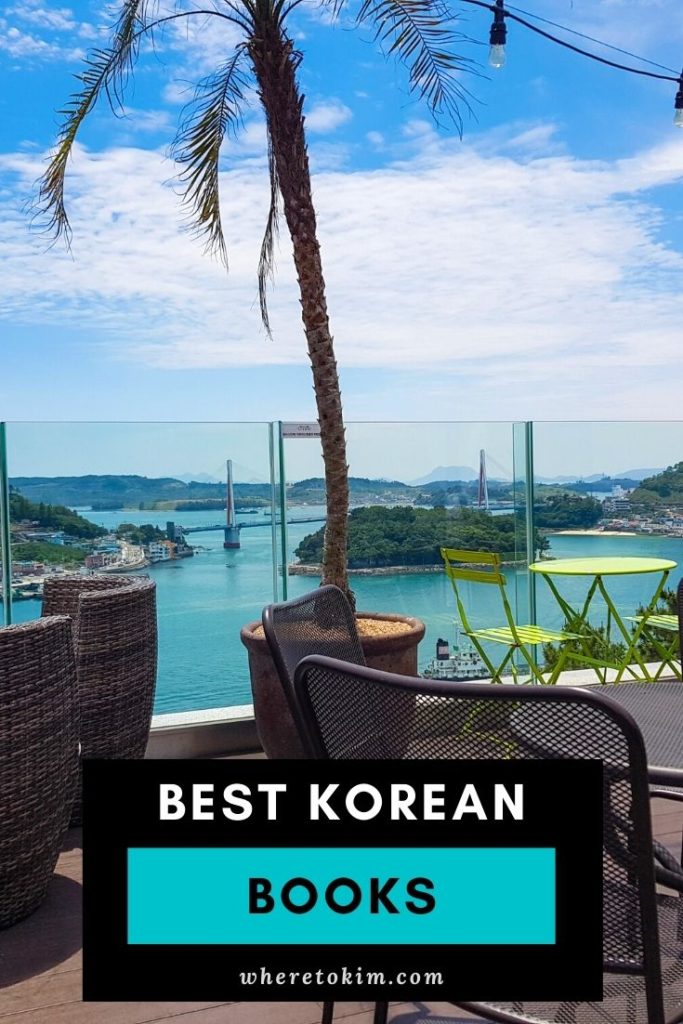

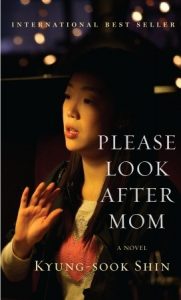
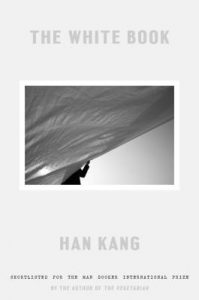
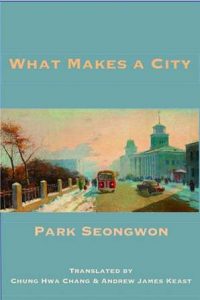
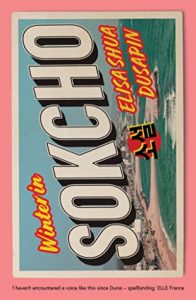
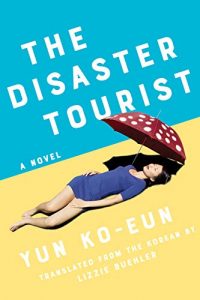


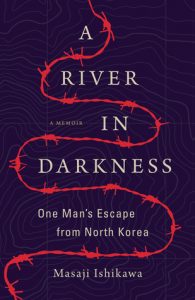
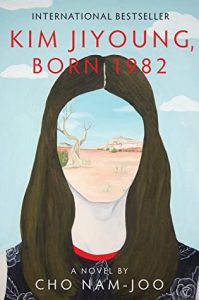
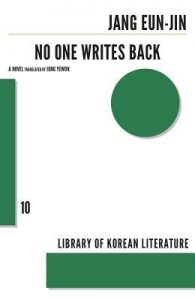
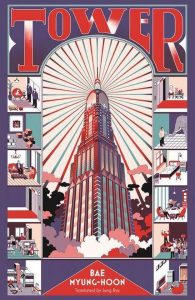
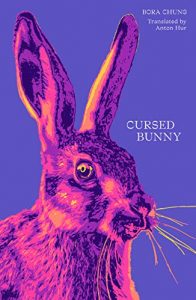
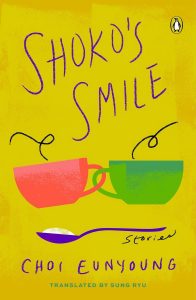
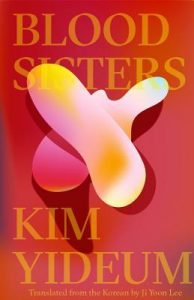
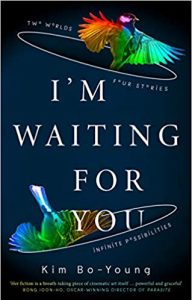

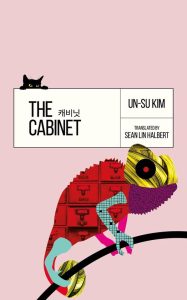
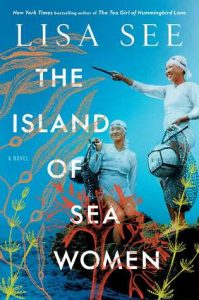
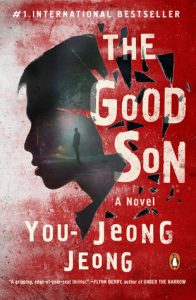
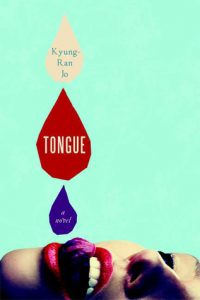
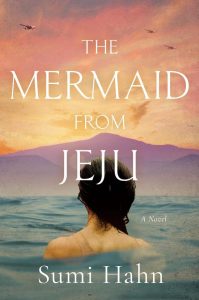
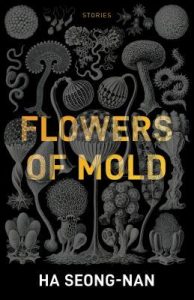
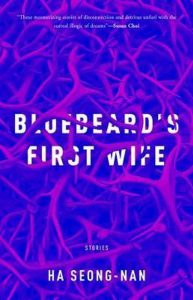
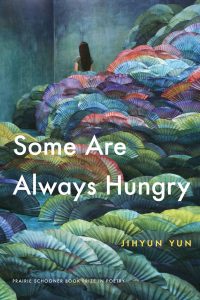
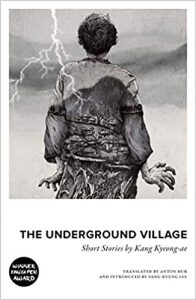
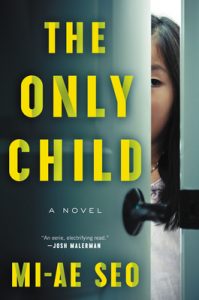
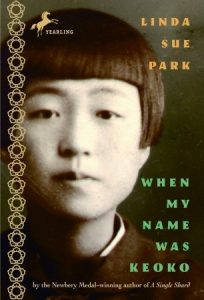
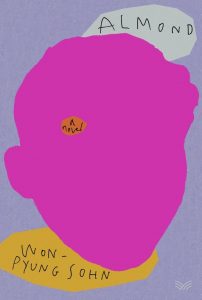
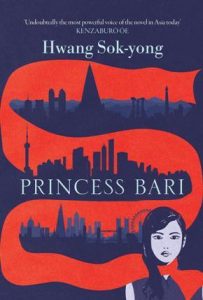
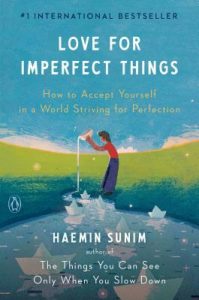
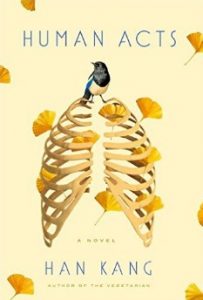
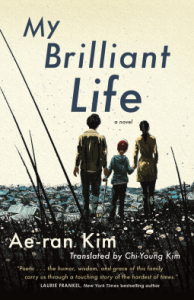
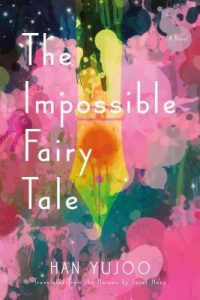
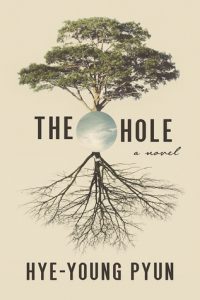
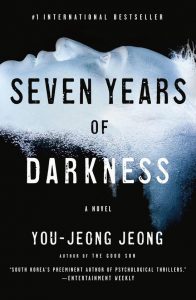
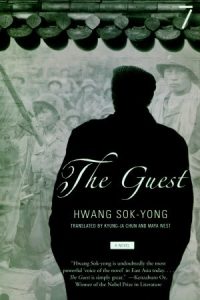
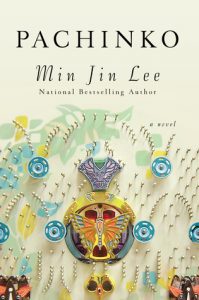
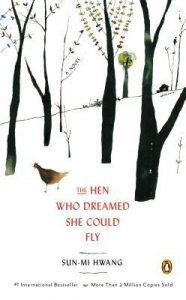
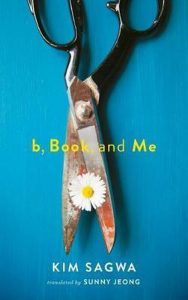
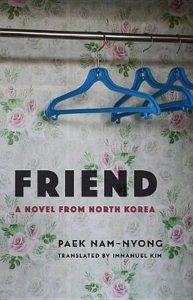
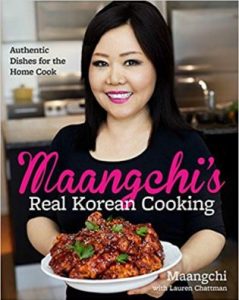
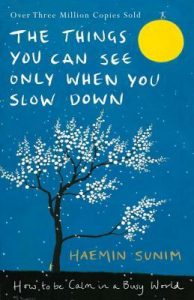
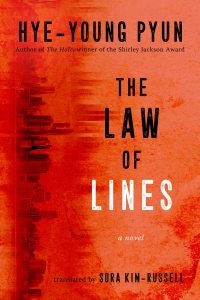
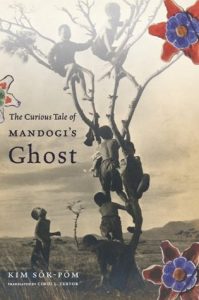
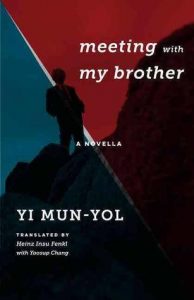

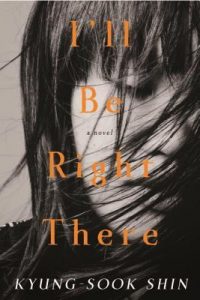
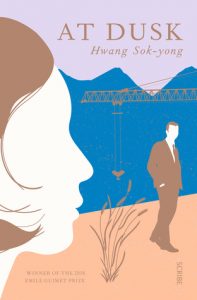

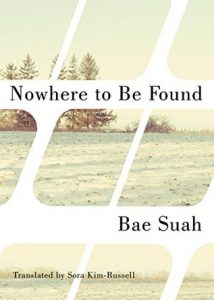
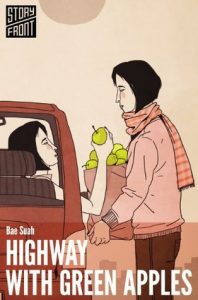
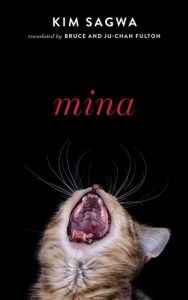
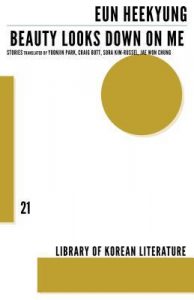
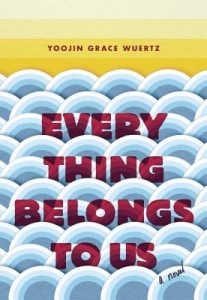
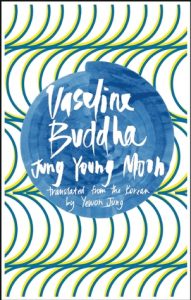
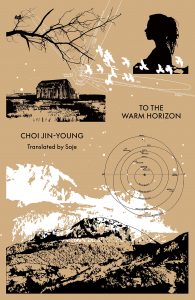






I WANT TO DIE BUT I WANT TO EAT TTEOKPOKKI ; has this book been translated in English? If yes can I get the link. Please!
Hi Bushra,
This book has been translated to English and will be published on 23 June 2022 (UK Amazon paperback) and 1 November 2022 (Link for hardcover and kindle). I will publish my review of this book on June 20th.
Kind regards,
Kim
I am home and I wanna go home Korean book with eng translation book link.
Are you talking about the book 집에 있는데도 집에 가고 싶어 (which translates to Even though I am home, I want to go home) by 권라빈 (Kwon Rabin)? As far as I know, this book hasn’t been translated into English yet. It looks really nice though, so hopefully, it will.